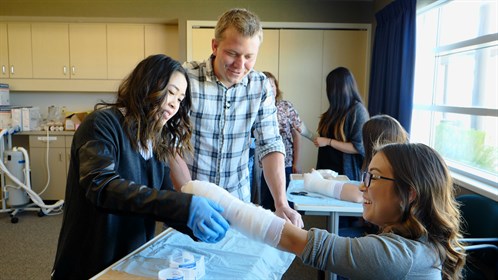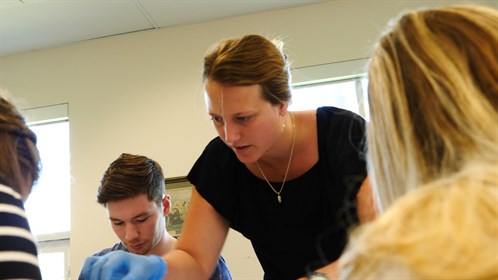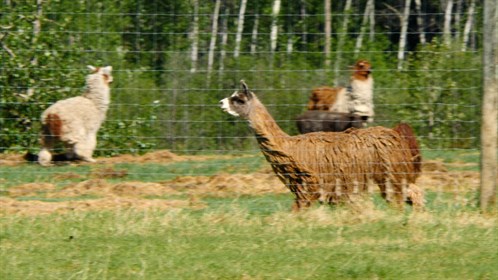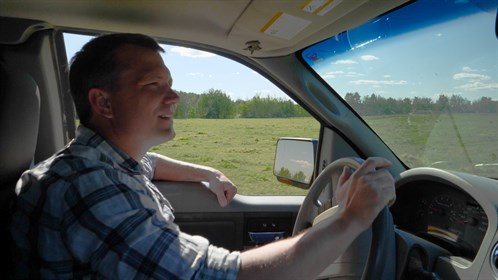For many years, the community of Manning struggled to keep physicians.
“Recruitment was ongoing for quite a few years. There was even a span of time when we just managed with locum coverage which was not good for our community,” says Jo Kelemen, Site Manager at the Manning Community Health Centre.
Since residents of Manning weren’t able to see a doctor consistently, they often drove long distances to other towns for medical services.
Cows played a part in changing that.
Dr. Tyler May grew up in the Manning area. His grandparents originally settled here to farm. “I think it’s in my blood.” “We used to have elk and wild boar when I was growing up,” says Dr. May.
The lure of ranching brought him back. Four years ago, he started with 15 cattle. He thought it wouldn’t be that much more work to expand to 50, then 100 and today – 200. He’s hired a farm manager.

Four years ago, he became the first permanent physician to practise in Manning for years. One year ago, Dr. Ansie Capon joined him as the second.

They both provide care at Manning Medical Clinic and Manning Community Health Centre.
“I like the scope and the breadth of practice of being a rural GP,” says Dr. May. “I like to work somewhat independently in my practice and being a rural GP gives you the option to do that. We also have a very good staff at this hospital and I locumed here a couple of times before I decided to make the permanent move back here. Everybody has always been really easy to work with. Very supportive.”
“There aren’t many places where you can go from the hospital to the ranch in 5 minutes. It was one of the drawing cards for me to come back here once I decided I wanted to farm.”
Dr. May practises holistic farming. For the most part, his cattle are 100% grass fed. He avoids the use of pesticides, herbicides and chemical fertilizers.
“Instead of competing with nature we’re trying to co-exist with it. We’re trying to use bio-diversity to try and improve productivity on our farm,” says Rancher May.

He provides care for sick people, does he also provide care when one of his llamas, pigs or cows get sick? Dr. May chuckles: “Well, I think there is some overlap but I still consult our local veterinarian who happens to be my cousin’s wife.”
He does feel prevention is a common trait in keeping both cattle and people healthy.
“What we try and do is keep the cattle on fresh grass. Keep them in new environments. Don’t keep cattle confined to the same areas for long periods of time. We don’t give diseases the chance to develop that way. And I think we find that in people. If we can keep them healthy, they do a better job of staying healthy.”

